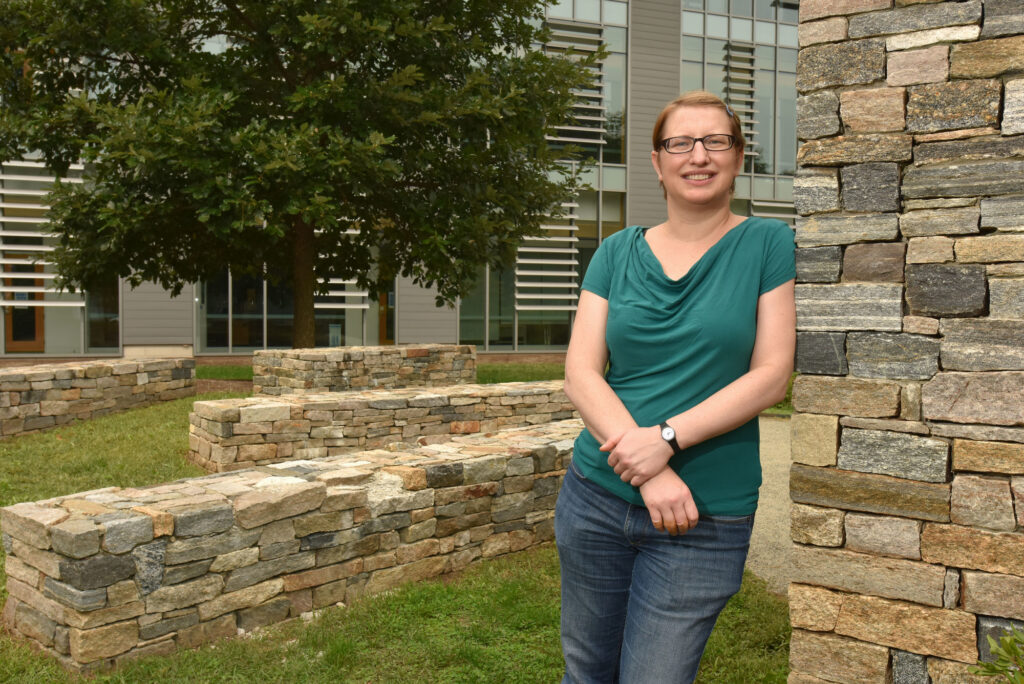Primrose Boynton

Assistant professor of biology
My educational background: “I grew up in northern California, in the East Bay, where I attended public schools. I got my bachelor’s degree in genetics and plant biology from UC Berkeley, where I did undergraduate research on mycorrhizal fungi—these are fungi that grow on plants’ roots and help them get nutrients from the soil. After two years in the Peace Corps, in Togo, working in natural resource management, I enrolled in a Ph.D. program at Harvard University in organismic and evolutionary biology. I did my Ph.D. thesis on the microscopic fungi that live in the leaves of carnivorous pitcher plants. I then got postdoctoral research experience at a Max-Planck Institute in Germany, working on the ecology and evolution of baker’s yeast and its close relatives. Finally, I worked as a project leader, also at the Max-Planck Institute, and also on yeast ecology and evolution.”
Why I became an educator: “During my work as a researcher, I got several opportunities to teach, including designing new courses and supporting existing courses. And I loved these courses. I found myself looking forward to interacting with students, and eager to get to know them and follow them as they progressed in their programs. I especially loved the opportunity to point students in a scientific direction and watch them run with it to expand the questions they were asking about the natural world and express their own creativity.”
What led me to my field: “When I was young, I visited a botanical garden and had the ‘wow, I didn’t know there could be so many weird kinds of plants!’ experience that I think a lot of people have when they first encounter biodiversity in an explicit way. And I kind of took that experience and ran with it, taking every opportunity I could to marvel at the weird and wonderful of the natural world as I went to college and then grad school. Plant diversity is awe-inspiring, but as I moved to smaller and smaller organisms, I found stranger and stranger fungi, and then bacteria and archaea, to marvel at.”
My current research focus: “I want to understand how evolution operates on microbes where they live in their wild habitats. There has been a lot of work on microbial evolution in the lab: microbes tend to evolve quickly in the lab and some are very easy to cultivate as they evolve and change. But that research doesn’t tell us as much as we’d like about how those same microbes evolve in the dynamic and varied environments they live in in nature, such as forests, soils or the surfaces of plants. My research focuses on yeasts, which are single-celled fungi. There are many kinds of yeasts, but the most famous one is the one that ferments foods and beverages to give us things like bread and alcoholic drinks.”
Most important lesson I learned in college: “Most of the diversity of life on Earth is both difficult to see with our own eyes, and super weird. We have to make a special effort to detect and appreciate this biodiversity, but it’s rewarding to start to understand the strange ways that life can happen in all of the environments on Earth, and to understand how that life impacts our own lives.”
What I want every student to learn: “I think that every student interested in biology should learn about microbiology. Our big eyes and bodies bias us toward only seeing and experiencing the biology of big things—plants and animals, and maybe mushrooms—but the microscopic world, while invisible, is full of new and exciting organisms that kind of blow my mind. These organisms are really the things that shape our world and our bodies, and without appreciating them students won’t really understand how life and the greater environment really interact with one another.”
What few people know about me: “I really love old movies, especially silent movies. During COVID-19 times, I miss going to a movie theater and seeing a film in a room full of people.”
What I am excited about teaching this semester: “I’m teaching introductory microbiology, and I’m excited about challenging students to reflect on how evolution has produced the vast diversity of microbes and macrobes (macrobes are big things like plants and animals) that exist today. I want them to change the way they see the world and the focus of their biological imaginations from a few big things to many many small things.”
